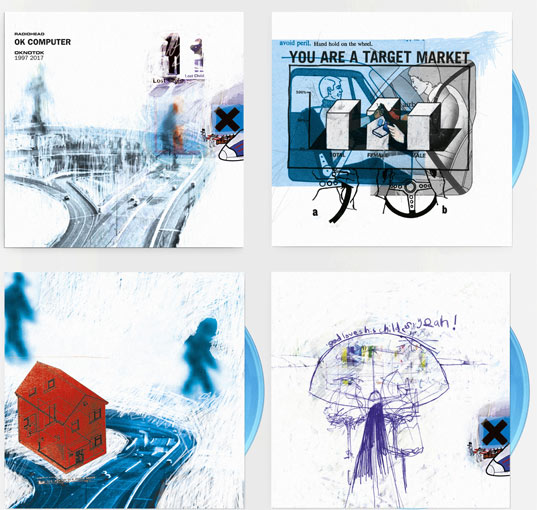

Radiohead are among those artists who conform to neither model. Either they go the way of John Lennon, Sting and Bono and use their fame as a platform to talk about issues such as world hunger and deforestation, or they go the way of Bob Dylan, Kurt Cobain and Amy Winehouse and express ambivalence toward their success. As Marianne Letts notes in Radiohead And The Resistant Concept Album, there are two ways artists tend to respond to such success. Bands that pinpoint the anxieties of contemporary society are lauded as voices of their generation and tend to achieve dizzying levels of success as a result. Since the 1950s, critics have applauded artists who have used their music as a form of social commentary. If Yorke absorbed the “noise” of the computer age, then maybe OK Computer did too. “It was just the noise that was going on in my head for most of a year and a half of travelling and computers and television and just absorbing it all.” From Yorke’s comments, it would seem that while OK Computer should not be seen as a commentary about technology, it can be viewed as a product and a reflection of the digital age. “It’s not really about computers,” Yorke once said. The record has also recieved a great deal of analytical attention over the years, with some arguing that it is more successful than Pink Floyd’s Dark Side Of The Moon in its exploration of technological alienation, something Radiohead have always rejected. Pepper’s and Abbey Road on countless lists collecting the greatest albums of all time. The 1997 studio effort is frequently labelled one of the best albums in rock history and, in 2008, ranked higher than both Sgt.



It’s all there in the title: OK Computer implies submission to the realm of the digital – an acceptance that music-making and life itself are already intimately bound to computer technology.Īs Radiohead’s best-selling album, OK Computer has had a remarkably positive afterlife. Indeed, some have gone so far as to assert that the album could end up being the focal point for historians analysing the digital era. In other words: if you want to know how it felt to be alive in 1997, listen to OK Computer. Despite the varying reviews the album recieved, it endures not only as one of the most pioneering albums of the 1990s but as the perfect encapsulation of a specific moment in social, historical and political time. Some declared it a seminal work others labelled it a sacred cow. On release, OK Computer was both celebrated and derided.


 0 kommentar(er)
0 kommentar(er)
